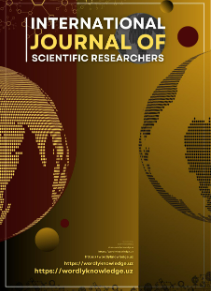THE REPRESENTATION OF WOMEN'S RESILIENCE IN KHALED HOSSEINI'S «A THOUSAND SPLENDID SUNS»
Keywords:
Khaled Hosseini, A Thousand Splendid Suns, women's resilience, feminist literary criticism, Afghan society, gender inequality, patriarchy, oppression, survivalAbstract
This study explores the representation of women's resilience in Khaled Hosseini's novel «A Thousand Splendid Suns.» Through a detailed analysis of the characters, setting, and narrative structure, this paper examines how Hosseini portrays the multifaceted struggles and enduring strength of Afghan women under socio-political turmoil. Employing a feminist literary criticism framework, the study investigates the ways in which the novel addresses themes of patriarchy, oppression, and survival. The findings suggest that Hosseini's work not only highlights the resilience of women but also serves as a critique of gender inequality in Afghan society. This paper contributes to the broader discourse on women's literature and resilience in conflict zones.
References
Hosseini, K. (2007). «A Thousand Splendid Suns». Riverhead Books.
Sabri, B., & Haden, P. (2015). The Role of Patriarchy in Domestic Violence Among Afghan Women: Examining the Perspectives of Service Providers in Afghanistan. «Journal of Interpersonal Violence», 30(3), 388-409.
Niner, S. (2011). Hosseini's «A Thousand Splendid Suns»: A Feminist Reading. «Gender & Society», 25(4), 487-501.
Abu-Lughod, L. (2013). «Do Muslim Women Need Saving?» Harvard University Press.
Boehmer, E. (2015). Women and the War Story. In «Colonial and Postcolonial Literature» (pp. 233-252). Oxford University Press.
Friedan, B. (1963). «The Feminine Mystique». W.W. Norton & Company.
Saigol, R. (2016). Feminism and Women's Rights Movements in Pakistan. In «Gender and Power in Muslim Societies» (pp. 159-182). Bloomsbury Academic.
Spivak, G. C. (1988). Can the Subaltern Speak? In C. Nelson & L. Grossberg (Eds.), «Marxism and the Interpretation of Culture» (pp. 271-313). University of Illinois Press.







